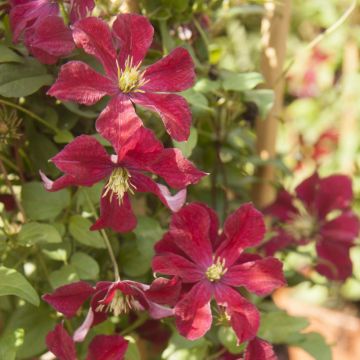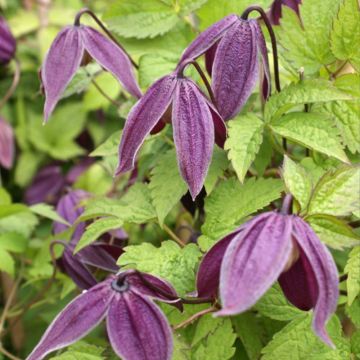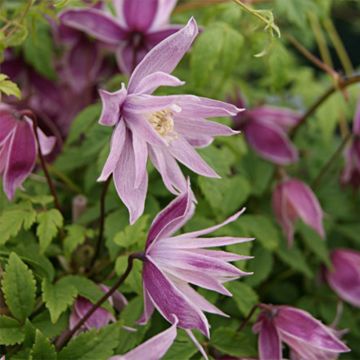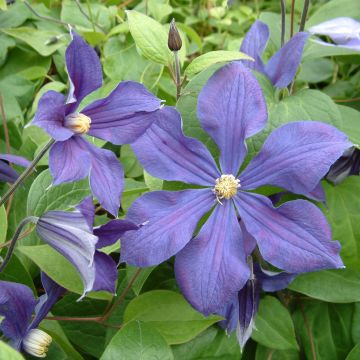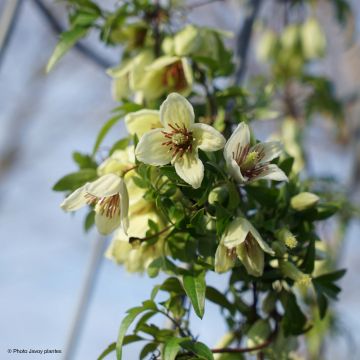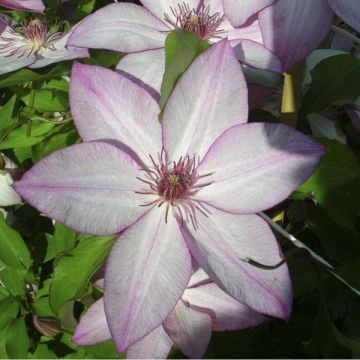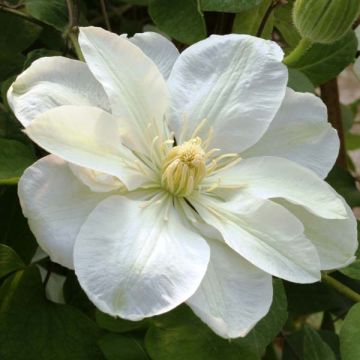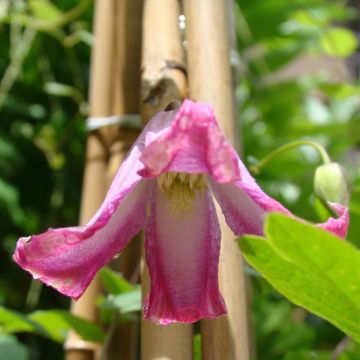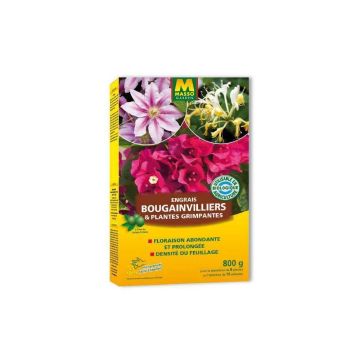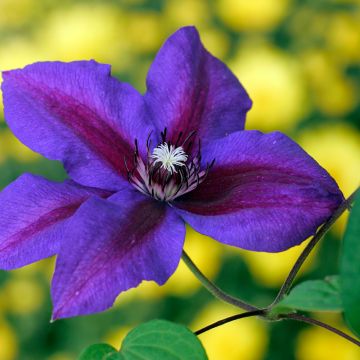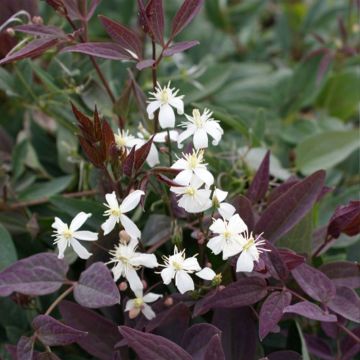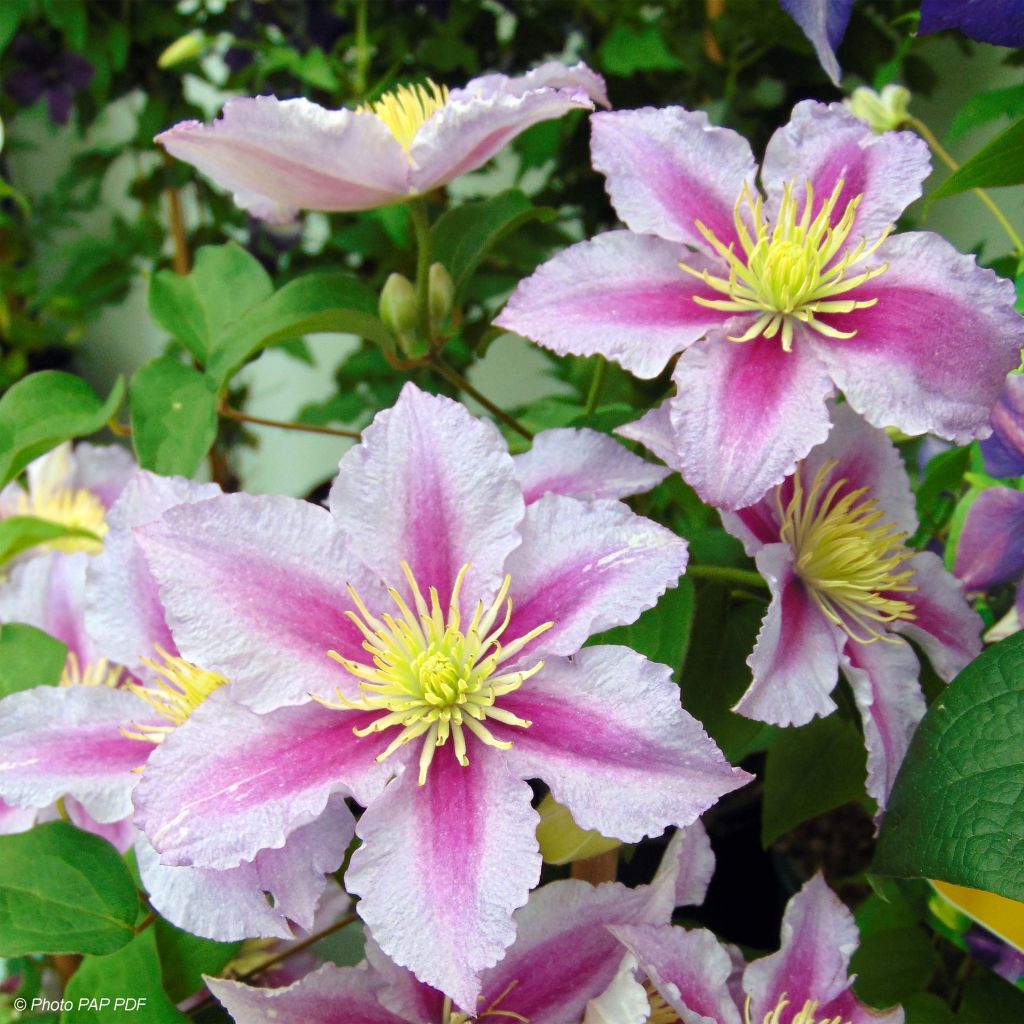

Clematis patens Piilu
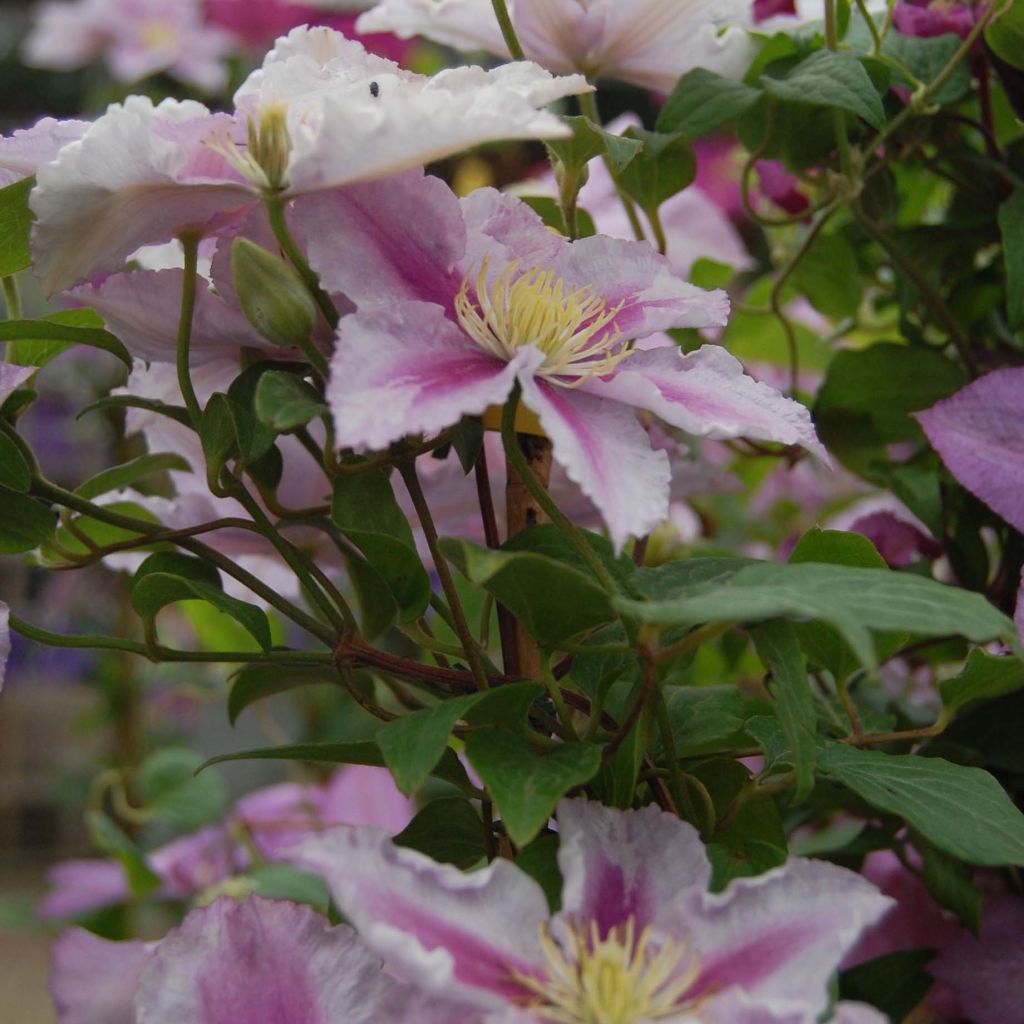

Clematis patens Piilu
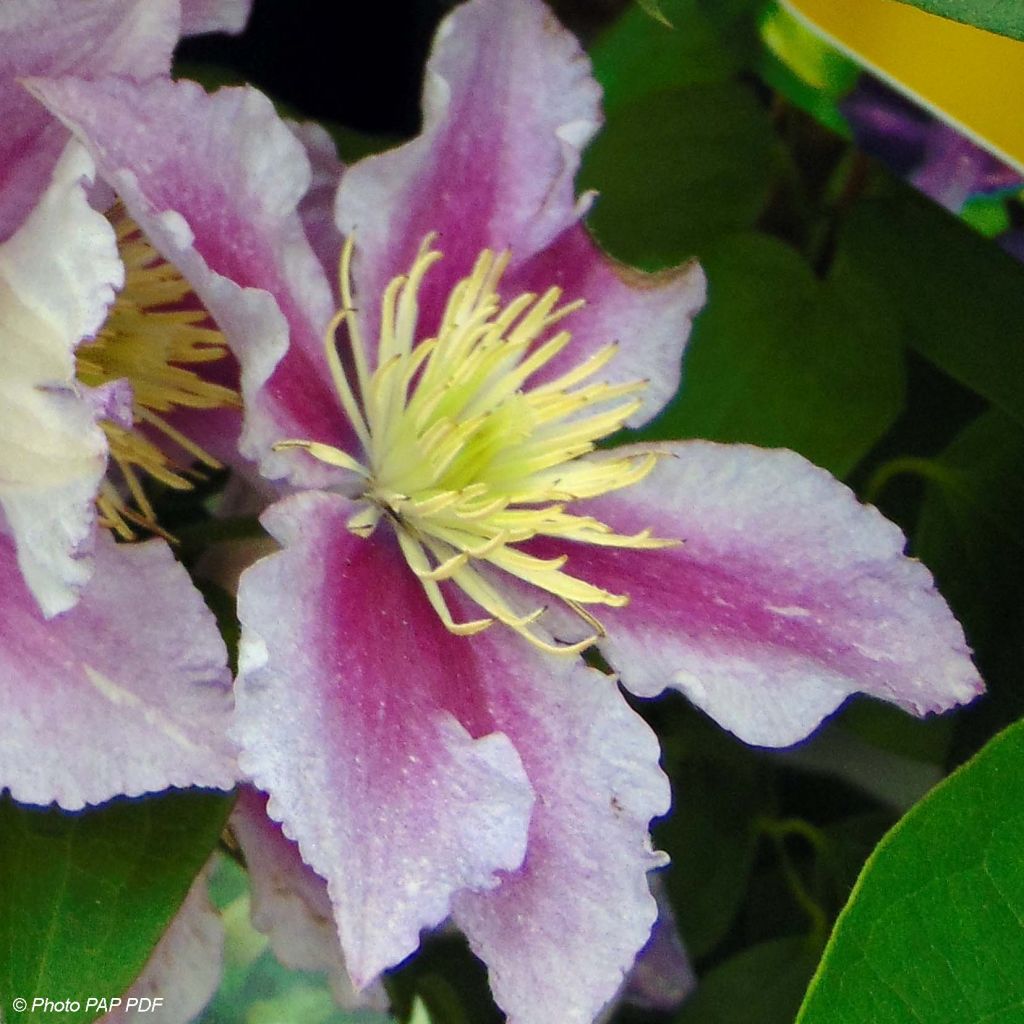

Clematis patens Piilu
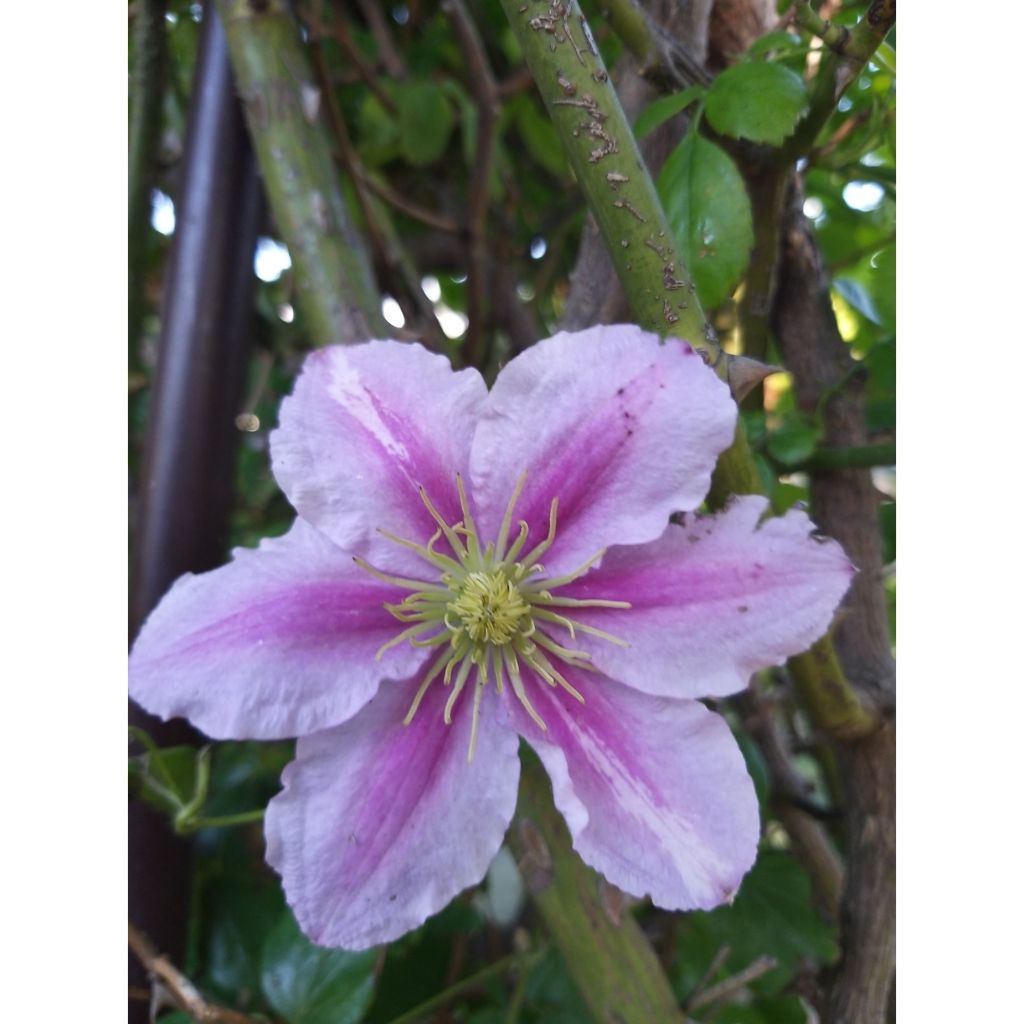

Clematis patens Piilu
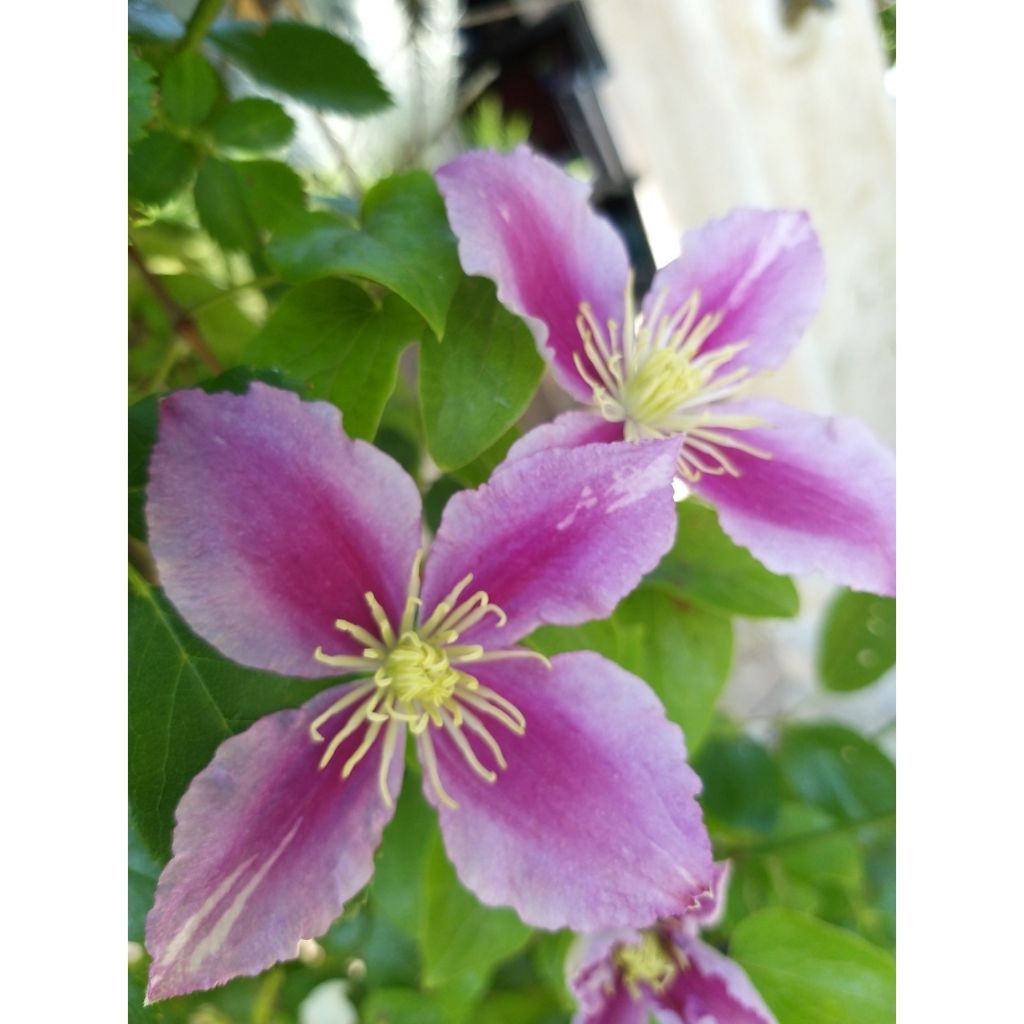

Clematis patens Piilu
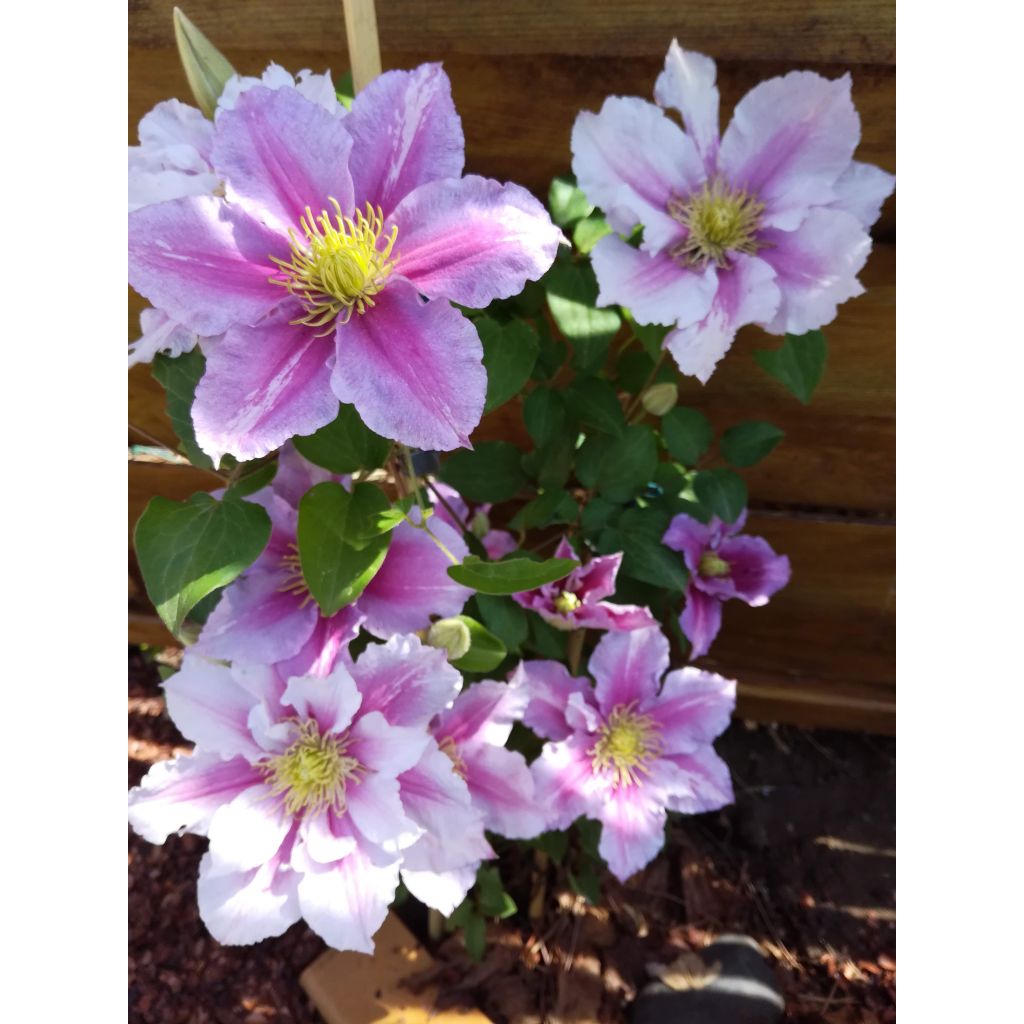

Clematis patens Piilu
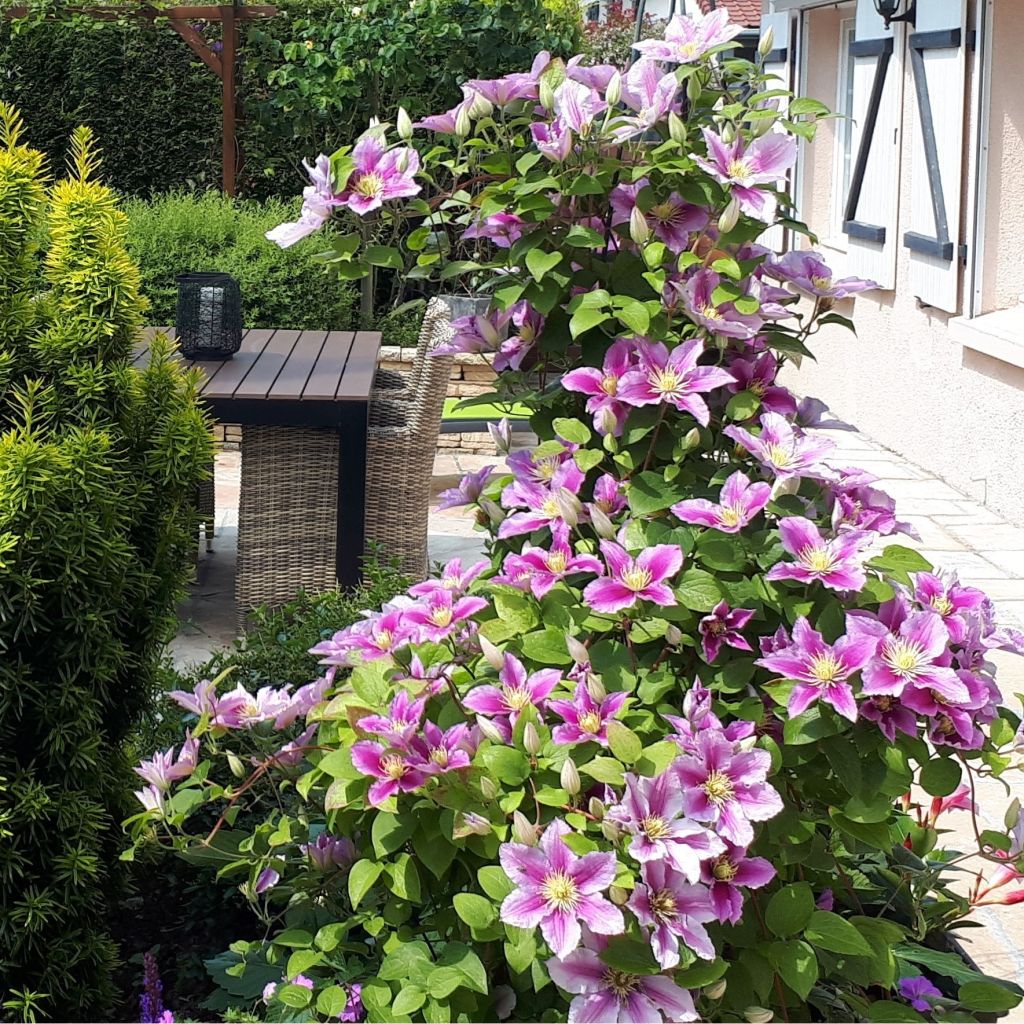

Clematis patens Piilu
Clematis patens Piilu
Clematis patens Piilu
Early Large-flowered Clematis, Patens Clematis
This item cannot be shipped to the selected country
Delivery charge from €5.90
Delivery charge from €5.90
More information
Schedule delivery date,
and select date in basket
This plant carries a 6 months recovery warranty
More information
We guarantee the quality of our plants for a full growing cycle, and will replace at our expense any plant that fails to recover under normal climatic and planting conditions.
From €5.90 for pickup delivery and €6.90 for home delivery
Express home delivery from €8.90.
From €5.90 for pickup delivery and €6.90 for home delivery
Express home delivery from €8.90.

Does this plant fit my garden?
Set up your Plantfit profile →
Description
The 'Piilu' Clematis is a compact climbing plant, suitable for container cultivation and offering a long and abundant flowering period. Balconies and terraces will quickly adopt this perennial with its very romantic hues. From late spring, a first wave of flowers, sometimes semi-double or double, invades the foliage and brings a lovely freshness. The tepals are pale pink on the outer edge and bright pink in the centre. They encircle a bristly heart of butter yellow stamens. This flowering will pause briefly in August and resume in late summer to sprinkle stars on the trellises and walls that this hardy plant loves to cover.
This recent creation, dating back to the 1980s, comes from Estonia and was quickly rewarded at Courson in 2000. It is the result of cross-breeding between 'Hagley Hybrid' and 'Makhrovyi', carried out by Uno Kivistik. Belonging to the Ranunculaceae family, this Clematis, like most of its cousins, likes a light, deep, moist and fertile soil, preferably neutral. It appreciates a sunny or partially shaded (where its colours will be even more intense) exposure, with the base of the plant always in shade. It is frost-resistant and can withstand freezing temperatures. However, it does not like stagnant moisture, so the substrate must be well-draining and watering should be moderate (if necessary, especially in the first year). Easy and undemanding, it allows beginners to achieve beautiful results with little difficulty.
'Piilu' (pronounced "pilou") is a climbing plant of reasonable size that can reach a height of 2 m (7ft). The previous year's stems will bear spring flowers from May to July. These flowers, sometimes semi-double or double, can be composed of multiple tepals and reach 10 cm (4in) in diameter. The late summer flowering (carried by the current year's branches) begins in September and continues into October. The single star-shaped flowers are slightly smaller (6 cm (2in) in diameter), but display the same shades that give them a piquant charm. The tepals, ending in a point and often with undulated margins, are a very soft light pink, with a more intense pink at the centre that enhances the overall appearance. They open fully and reveal a refreshing light yellow stamen centre. Later, fruits appear and decorate the foliage, remaining until winter. The leaves, composed of 3 to 5 leaflets, are deciduous and a beautiful tender green. They are carried by voluble stems that twine around their support.
In containers, with a trellis to support it, 'Piilu' will reward owners of small balconies and will flower for a long time even in partial shade. Place some spring bulbs at its base and enjoy the show with minimal maintenance. To enhance this scene a bit more, 'Baby Star', as well as the 'pink and white arbor' collection, will keep it company in perfect harmony. Finally, if you have a larger space, this non-invasive clematis will weave through a bamboo tipi in a flower bed, adding verticality.
Report an error about the product description
Clematis patens Piilu in pictures
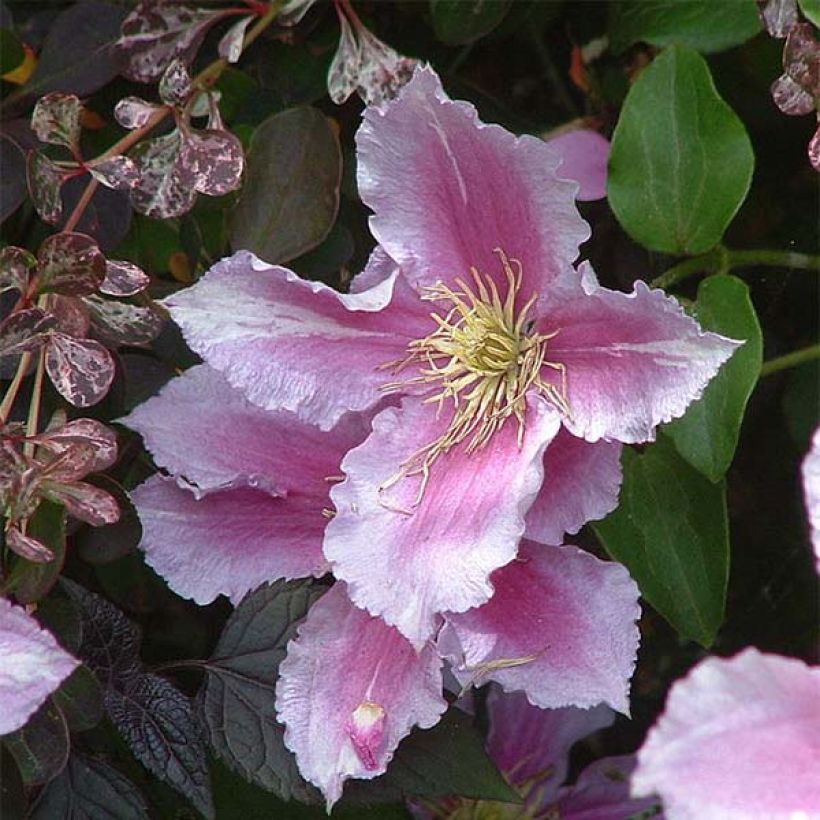

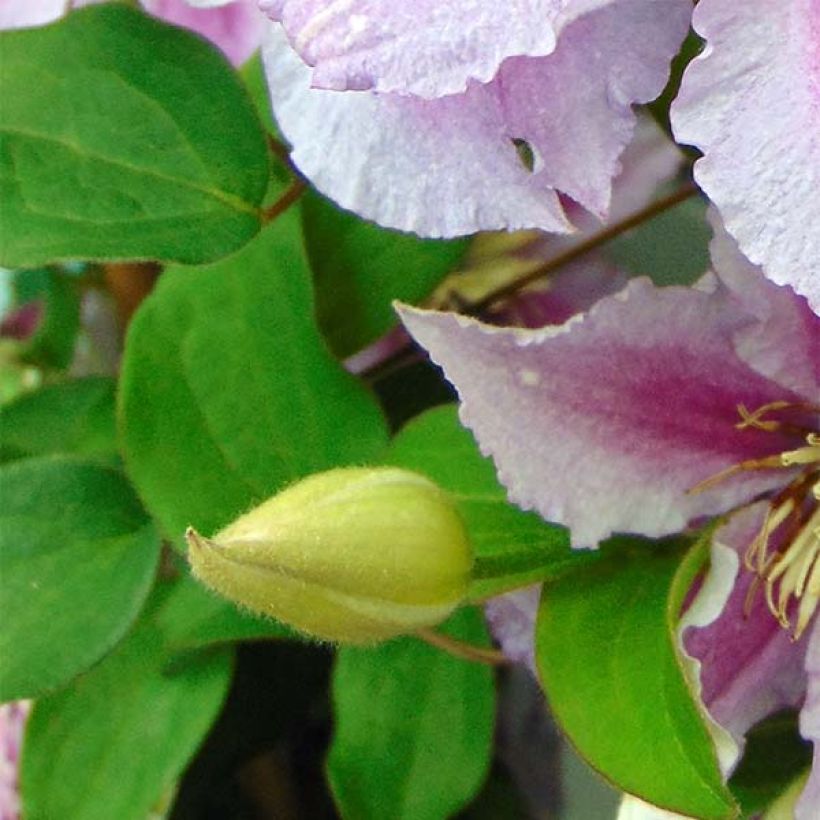

Plant habit
Flowering
Foliage
Botanical data
Clematis
patens
Piilu
Ranunculaceae
Early Large-flowered Clematis, Patens Clematis
Cultivar or hybrid
Other Clematis A to Z
Planting and care
Planting period
Intended location
Care
-
, onOrder confirmed
Reply from on Promesse de fleurs
Clematis
Haven't found what you were looking for?
Hardiness is the lowest winter temperature a plant can endure without suffering serious damage or even dying. However, hardiness is affected by location (a sheltered area, such as a patio), protection (winter cover) and soil type (hardiness is improved by well-drained soil).

Photo Sharing Terms & Conditions
In order to encourage gardeners to interact and share their experiences, Promesse de fleurs offers various media enabling content to be uploaded onto its Site - in particular via the ‘Photo sharing’ module.
The User agrees to refrain from:
- Posting any content that is illegal, prejudicial, insulting, racist, inciteful to hatred, revisionist, contrary to public decency, that infringes on privacy or on the privacy rights of third parties, in particular the publicity rights of persons and goods, intellectual property rights, or the right to privacy.
- Submitting content on behalf of a third party;
- Impersonate the identity of a third party and/or publish any personal information about a third party;
In general, the User undertakes to refrain from any unethical behaviour.
All Content (in particular text, comments, files, images, photos, videos, creative works, etc.), which may be subject to property or intellectual property rights, image or other private rights, shall remain the property of the User, subject to the limited rights granted by the terms of the licence granted by Promesse de fleurs as stated below. Users are at liberty to publish or not to publish such Content on the Site, notably via the ‘Photo Sharing’ facility, and accept that this Content shall be made public and freely accessible, notably on the Internet.
Users further acknowledge, undertake to have ,and guarantee that they hold all necessary rights and permissions to publish such material on the Site, in particular with regard to the legislation in force pertaining to any privacy, property, intellectual property, image, or contractual rights, or rights of any other nature. By publishing such Content on the Site, Users acknowledge accepting full liability as publishers of the Content within the meaning of the law, and grant Promesse de fleurs, free of charge, an inclusive, worldwide licence for the said Content for the entire duration of its publication, including all reproduction, representation, up/downloading, displaying, performing, transmission, and storage rights.
Users also grant permission for their name to be linked to the Content and accept that this link may not always be made available.
By engaging in posting material, Users consent to their Content becoming automatically accessible on the Internet, in particular on other sites and/or blogs and/or web pages of the Promesse de fleurs site, including in particular social pages and the Promesse de fleurs catalogue.
Users may secure the removal of entrusted content free of charge by issuing a simple request via our contact form.
The flowering period indicated on our website applies to countries and regions located in USDA zone 8 (France, the United Kingdom, Ireland, the Netherlands, etc.)
It will vary according to where you live:
- In zones 9 to 10 (Italy, Spain, Greece, etc.), flowering will occur about 2 to 4 weeks earlier.
- In zones 6 to 7 (Germany, Poland, Slovenia, and lower mountainous regions), flowering will be delayed by 2 to 3 weeks.
- In zone 5 (Central Europe, Scandinavia), blooming will be delayed by 3 to 5 weeks.
In temperate climates, pruning of spring-flowering shrubs (forsythia, spireas, etc.) should be done just after flowering.
Pruning of summer-flowering shrubs (Indian Lilac, Perovskia, etc.) can be done in winter or spring.
In cold regions as well as with frost-sensitive plants, avoid pruning too early when severe frosts may still occur.
The planting period indicated on our website applies to countries and regions located in USDA zone 8 (France, United Kingdom, Ireland, Netherlands).
It will vary according to where you live:
- In Mediterranean zones (Marseille, Madrid, Milan, etc.), autumn and winter are the best planting periods.
- In continental zones (Strasbourg, Munich, Vienna, etc.), delay planting by 2 to 3 weeks in spring and bring it forward by 2 to 4 weeks in autumn.
- In mountainous regions (the Alps, Pyrenees, Carpathians, etc.), it is best to plant in late spring (May-June) or late summer (August-September).
The harvesting period indicated on our website applies to countries and regions in USDA zone 8 (France, England, Ireland, the Netherlands).
In colder areas (Scandinavia, Poland, Austria...) fruit and vegetable harvests are likely to be delayed by 3-4 weeks.
In warmer areas (Italy, Spain, Greece, etc.), harvesting will probably take place earlier, depending on weather conditions.
The sowing periods indicated on our website apply to countries and regions within USDA Zone 8 (France, UK, Ireland, Netherlands).
In colder areas (Scandinavia, Poland, Austria...), delay any outdoor sowing by 3-4 weeks, or sow under glass.
In warmer climes (Italy, Spain, Greece, etc.), bring outdoor sowing forward by a few weeks.

































